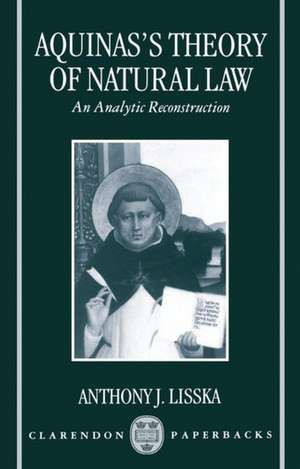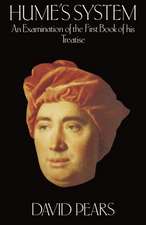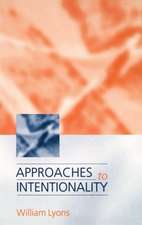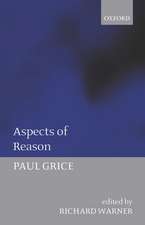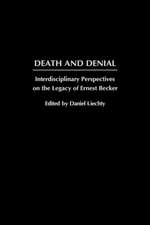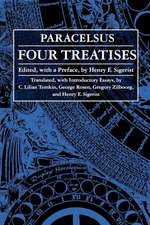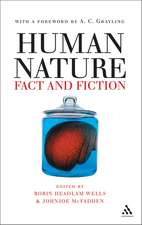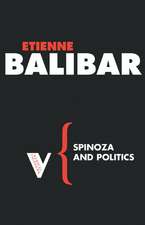Aquinas's Theory of Natural Law: An Analytic Reconstruction
Autor Anthony J. Lisskaen Limba Engleză Paperback – 20 noi 1997
Preț: 357.24 lei
Preț vechi: 492.91 lei
-28% Nou
Puncte Express: 536
Preț estimativ în valută:
68.38€ • 74.30$ • 57.48£
68.38€ • 74.30$ • 57.48£
Carte tipărită la comandă
Livrare economică 09-15 aprilie
Preluare comenzi: 021 569.72.76
Specificații
ISBN-13: 9780198269670
ISBN-10: 0198269676
Pagini: 336
Dimensiuni: 139 x 217 x 20 mm
Greutate: 0.42 kg
Editura: Clarendon Press
Colecția Clarendon Press
Locul publicării:Oxford, United Kingdom
ISBN-10: 0198269676
Pagini: 336
Dimensiuni: 139 x 217 x 20 mm
Greutate: 0.42 kg
Editura: Clarendon Press
Colecția Clarendon Press
Locul publicării:Oxford, United Kingdom
Recenzii
Philosophical controversies over natural law have immediate relevance to conflicts of everyday life ... not the least valuable feature of Anthony J. Lisska's lively and illuminating discussion is his catalogue of positions taken by participants in those controversies ... there are a number of stimulating discussions that deserve independent treatment, notably that of human rights. Lisska's elegant prose-style and clarity of exposition combine to make his book a pleasure to read. It deserves a wider audience than do most academic books.
All in all, this is a most welcome book...the range of the book is impressive, but just what it must be if the interpretation is to be sustained. Lisska's readers are confronted by a number of deconstructions...Lisska, in his workmanlike way, gains the respect and confidence of his reader. His book should be read and debated. It is a genuine contribution to the effort to decide what in the world moral philosophy is.
All in all, this is a most welcome book...the range of the book is impressive, but just what it must be if the interpretation is to be sustained. Lisska's readers are confronted by a number of deconstructions...Lisska, in his workmanlike way, gains the respect and confidence of his reader. His book should be read and debated. It is a genuine contribution to the effort to decide what in the world moral philosophy is.
